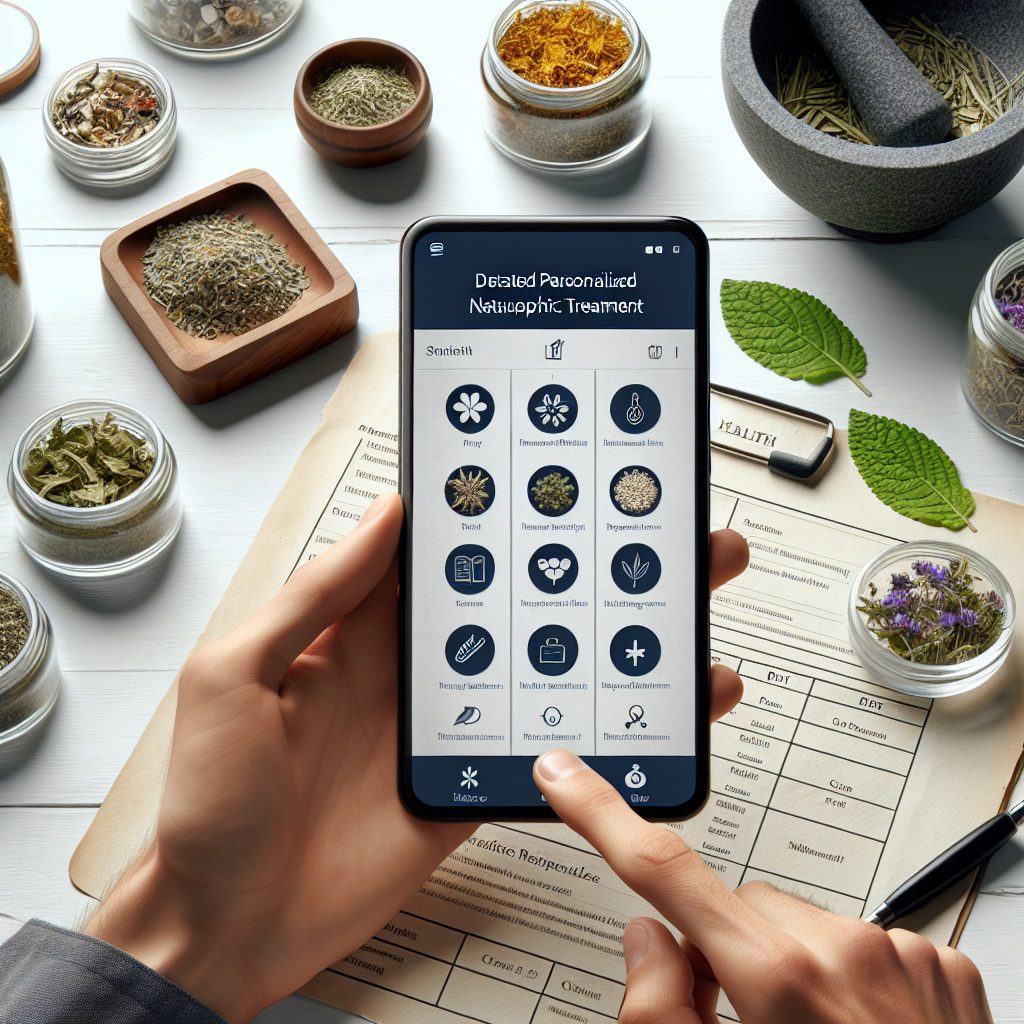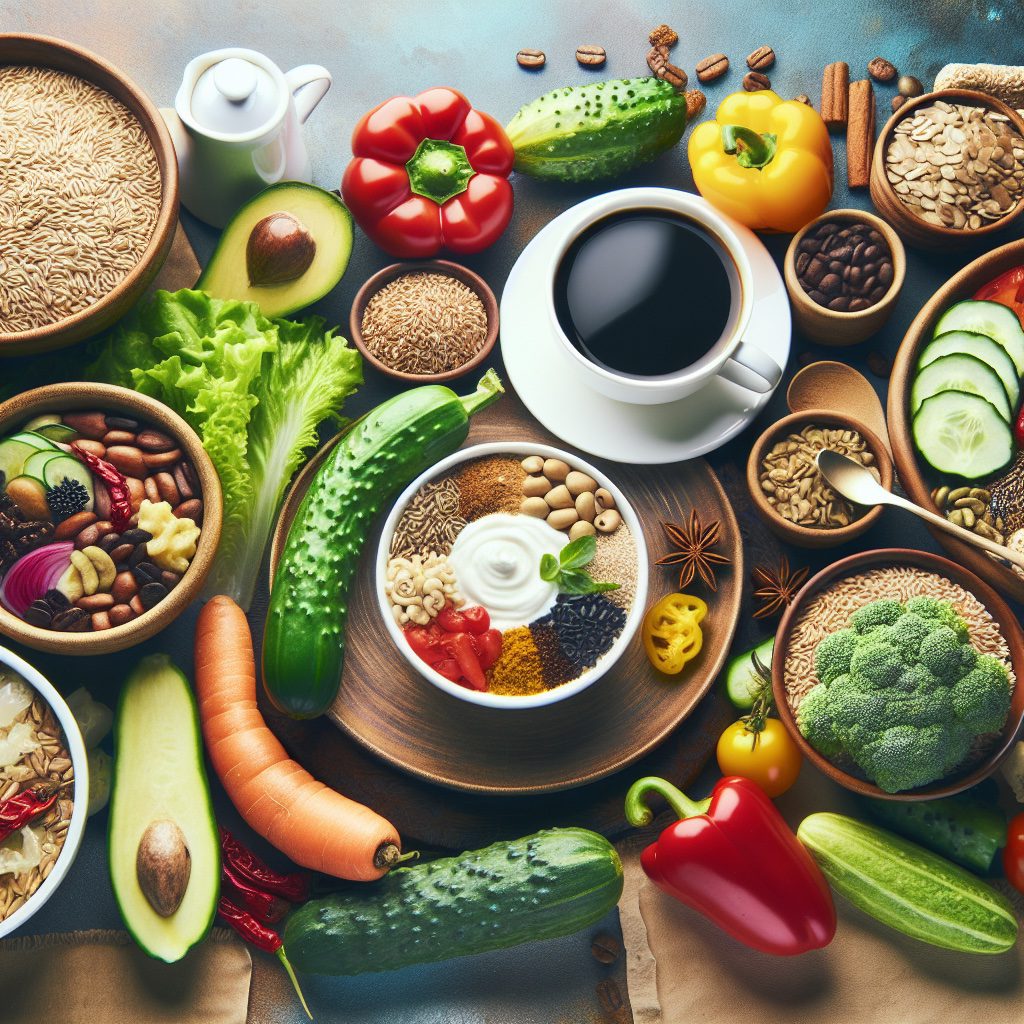Have you ever wondered why some days you feel full of energy while others you’re dragging yourself through the afternoon? The answer might lie not just in how much you sleep or exercise, but in what you eat. According to ancient Eastern wisdom, particularly Traditional Chinese Medicine (TCM), energy isn’t just about calories – it’s about balance.
The Eastern View of Energy: Understanding Qi
In Eastern medicine, the concept of energy revolves around something called “Qi” (pronounced “chee”). Think of Qi as your body’s vital life force – the invisible energy that flows through your body, keeping all your systems working in harmony. When your Qi is balanced and flowing smoothly, you feel energetic, focused, and healthy. When it’s blocked or imbalanced, that’s when fatigue, brain fog, and even illness can set in.
Unlike Western nutrition that focuses primarily on calories, proteins, and vitamins, TCM categorizes foods based on their energetic properties. Each food carries specific qualities that can either support or disrupt your body’s natural balance. This isn’t about counting calories or measuring protein – it’s about understanding how different foods interact with your unique body constitution.
“When we eat according to our body’s needs rather than just following general guidelines, we tap into an ancient wisdom that honors our individuality,” says Dr. Lin Chen, a TCM practitioner with over 20 years of experience. “This approach to food as medicine has sustained Eastern cultures for thousands of years.”
Food Energetics: Finding Your Balance
Traditional Chinese Medicine divides foods into different energetic categories: cooling, warming, neutral, and others that address specific imbalances like dampness. Learning about these categories can help you make better choices to balance your body and boost your energy.
Cooling Foods
If you tend to run hot – perhaps you’re often thirsty, crave cold drinks, or get irritable easily – cooling foods might help balance your body. These include:
- Cucumber, watermelon, and pears
- Leafy greens like spinach and kale
- Mung beans and tofu
- Green tea and mint
Warming Foods
If you’re always cold, have slow digestion, or low energy, warming foods can help stoke your internal fire:
- Ginger, cinnamon, and other warming spices
- Root vegetables like sweet potatoes and carrots
- Lamb, chicken, and other lean proteins
- Oats and brown rice
Damp-Forming Foods
Some foods create what TCM calls “dampness” in the body – a condition that can lead to sluggishness, brain fog, and low energy. These include:
- Dairy products
- Refined sugar and flour
- Fried and greasy foods
- Excessive raw foods
Many Americans struggle with dampness without realizing it. If you wake up feeling groggy despite enough sleep or experience an afternoon energy crash despite eating “healthy,” dampness might be the culprit. To restore balanced body energy, try reducing these damp-forming foods and incorporating more foods that resolve dampness, like bitter greens, radishes, and barley.
Sarah, a yoga instructor from Colorado, shared her experience: “I was eating what I thought was a perfect diet – lots of salads, smoothies, and whole grains. But I was always tired. When I learned about food energetics and started cooking more of my vegetables and adding warming spices, my energy completely transformed within two weeks.”
Building an Energy-Boosting Diet: Practical Steps
Creating a diet that supports balanced energy doesn’t mean overhauling everything you eat. Instead, it’s about making thoughtful adjustments based on your individual needs and the seasons. Here are some practical guidelines:
1. Cook Your Vegetables (Most of the Time)
Raw vegetables require more digestive energy to break down. Lightly steaming, sautéing, or roasting vegetables makes their nutrients more accessible and easier for your body to convert into energy.
2. Eat Seasonally
Nature provides what our bodies need in each season. Cold-weather vegetables like winter squash and root vegetables tend to be warming, while summer produces cooling fruits and vegetables when we need to beat the heat.
3. Include Protein at Every Meal
Protein provides sustained energy and helps stabilize blood sugar. Good choices include:
- Grass-fed meats in moderate portions
- Wild-caught fish
- Organic eggs
- Plant proteins like tempeh, lentils, and beans (properly prepared to reduce anti-nutrients)
4. Don’t Fear Healthy Fats
Quality fats are essential for hormone production and sustained energy. Include:
- Avocados
- Olive oil
- Nuts and seeds
- Coconut oil for cooking
5. Gentle Cooking Methods Matter
How you prepare food affects its energy. Slow cooking, steaming, and simmering tend to preserve the food’s life force better than high-heat methods like deep frying or grilling at very high temperatures.
Michael, a former coffee addict who switched to a more balanced approach, notes: “I used to rely on six cups of coffee daily just to function. After learning about what to eat for energy based on these principles, I’m down to one morning cup that I actually enjoy rather than desperately need. The difference is night and day.”
Gut Healing Foods: The Foundation of Energy
Eastern medicine understood the importance of gut health long before Western science confirmed the connection between our digestive systems and energy levels. The gut is where we extract Qi from our food – if this system is compromised, even the best diet won’t fully nourish you.
Probiotics and Prebiotics
Including probiotic-rich fermented foods helps maintain a healthy gut microbiome, which is essential for nutrient absorption and energy production:
- Kimchi and sauerkraut
- Kefir (if dairy is tolerated) or coconut kefir
- Miso
- Kombucha (in moderation)
Prebiotic foods feed your beneficial gut bacteria and include:
- Jerusalem artichokes
- Dandelion greens
- Garlic and onions
- Asparagus
- Bananas (slightly underripe)
Gut-Soothing Herbs and Foods
Traditional Eastern diets also incorporate specific herbs and foods that soothe the digestive tract:
- Ginger tea for stimulating digestion
- Licorice root (as tea) for soothing inflammation
- Slippery elm for healing the gut lining
- Bone broth for providing easily absorbable nutrients and collagen
“When working with clients struggling with chronic fatigue, I always start with gut healing foods,” explains nutritionist Emma Thompson. “About 70% see significant energy improvements within a month just by adding fermented foods and removing gut irritants.”
Recent research supports this ancient wisdom, with studies showing that gut health directly impacts energy metabolism, immune function, and even mental clarity – all components of feeling energized.
Listening to Your Body: The Most Important Practice
Perhaps the most valuable lesson from Eastern dietary wisdom is learning to listen to your own body. What works for someone else might not work for you, and what serves you in summer might deplete you in winter.
Pay attention to how you feel after meals:
- Do you feel energized or sluggish?
- Is your digestion comfortable or uncomfortable?
- How’s your mental clarity?
- How stable is your energy throughout the day?
Keep a simple food journal for a week, noting not just what you eat but how you feel afterward. Patterns will emerge that can guide you toward your optimal diet for energy.
“The body speaks to us constantly,” says Lisa, who resolved her years-long fatigue issues through this approach. “When I finally started listening instead of just following the latest diet trend, everything changed. I realized my body doesn’t do well with cold smoothies but thrives on warm, cooked foods – even in summer.”
Finding Your Balance with HerbalsZen
At HerbalsZen, we believe in harmony between humans and nature as the foundation for vibrant health and energy. Our philosophy aligns perfectly with these ancient Eastern principles of balance and individualized nutrition.
While adjusting your diet is powerful, sometimes we need additional support. Traditional herbal teas have been used for centuries to help balance body energy and support natural vitality. They offer gentle yet effective ways to address imbalances and enhance our connection to nature’s wisdom.
For example, cooling teas like our Dandelion, Honeysuckle & Chrysanthemum blend can help balance excess heat, while warming formulations like Astragalus, Codonopsis & Goji Berry tea support those who need to build more internal warmth and energy.
Remember that transforming your energy isn’t about quick fixes – it’s about creating sustainable habits that honor your body’s unique needs. Start small, perhaps with one change like incorporating more cooked foods or reducing dampness-causing items, and notice how your energy responds.
We’d love to hear about your journey with food energetics and gut healing foods. Share your experiences and questions with our community – after all, the path to balance is one we walk together, supporting each other along the way.
By embracing these ancient Eastern secrets about what to eat for energy, you might discover not just a temporary boost but a profound transformation in how you feel every day. Your body’s wisdom has been waiting for you to listen – and now you have some tools to understand what it’s saying.




